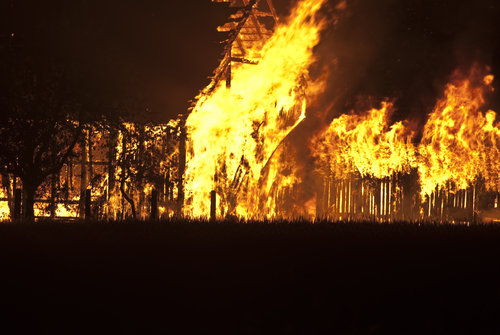Different gases can build up in barns
By Diego Flammini
Assistant Editor, North American Content
Farms.com
The North Huron Fire Department is trying to raise awareness about the different fire hazards that can be found in pig barns across Ontario.
“Over the past decade, the Fire Department of North Huron in Ontario has responded to a major pig barn, on average, every 18 months,” the Department said in an article designed to help firefighters understand the risks of pig barn fires. “In fact, pig-barn fires became routine events.”

Many pig barns include under-floor manure pits which can store manure for up to 12 months, and the popular use of plastics in barns means assorted gases can be released including methane and hydrogen sulfide; which has a rotten egg scent, is poisonous and flammable.
The increased presence of gases can reduce the integrity of electrical wiring, and can be more dangerous when a farmer shuts off ventilation systems.
The North Huron Fire Department says its meeting with farmers to preplan their buildings should a fire occur.
“Farmers are the heart of our rural community and suffer incredible emotional and financial loss in the event of a large-scale fire,” the article reads.
North Huron has responded to four pig barn fires since March 2014.